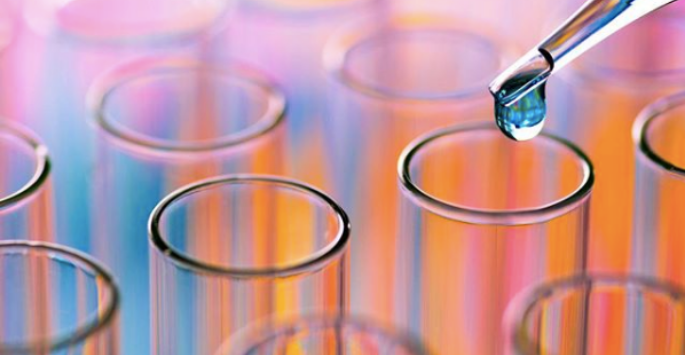
We don't like to be the bearer of bad news, but terms like "chemical-free" and "all-natural" are just marketing fluff.
Over the last decade, there has been a rise in consumers who want transparency in their products. They’re researching ingredients, they’re purchasing based on what’s healthier, and they want to know what is in the products they put on their skin, in their hair, and in their bodies. And honestly, we couldn’t be happier. Paying close attention to what products you put on your skin is what we’re all about at Supriya Dermatology.
But we’ve also noticed a rise in something else: products that are marketed as “chemical-free” or labeled with “natural ingredients”. Yes, it goes without saying that certain chemicals such as parabens, sulphates, phthalates, artificial fragrances, etc. have known negative effects on the skin when used long term. But lumping these chemicals in with all other chemicals that are commonly used in skincare products creates a misleading picture that chemicals = bad. This focus can be problematic as it doesn’t even educate consumers on why “all-natural” is better and why “chemical” is bad, instead leading consumers to purchase products based on fear instead of science. It also means that consumers can miss out on some beneficial ingredients and great results.
Since terms like “natural” or “chemical-free” are completely unregulated by any government entity and don’t require clinical evidence to make their bold claims, it can be difficult to actually pinpoint their benefits with any certainty. With limited scientific studies to compare real results, something labeled as beneficial because it’s all natural doesn’t necessarily mean it has the research to back it up. This isn’t to say that natural ingredients are bad—this certainly isn’t always the case. And if you have highly sensitive skin, it’s perfectly normal that you might gravitate towards all natural products. But if you’re hoping to squeeze remarkable results out of every bottle, here are some myths about “natural” vs “chemical” you should know to get younger, healthier skin out of each product.
Myth 1: If you can't pronounce it, you shouldn't put it on your skin.
Can you pronounce docosahexaenoic acid? Because even if you can’t, you should have no problem putting it on your skin. It’s an omega-3 fatty acid commonly found in salmon, and not only is it good for your heart and brain health, it’s extremely beneficial to photodamaged skin, wound healing, and contact dermatitis to name a few. Saying that you shouldn’t put something on your skin because it’s unpronounceable could result in you missing out on a lot of beneficial ingredients, so read the whole label to make sure you’re educated on the less common, tongue-twisting ingredients. And if you have any questions about what an ingredient can do, you can always ask your dermatologist.
Myth 2: If it's all-natural, it's Earth-friendly.
If you’re an environmentally-conscious brand that harvests your own ingredients and releases limited stock, this isn’t directed at you. However, brands like that are few and far between, and the majority are mass producers that actually might be putting a strain on the environment. The reason synthetic ingredients are sometimes more sustainable and environmentally friendly are because they’re biofermented in a lab. And then vigorously tested for efficacy and stability in that lab. So without any mass harvesting of select ingredients, this puts synthetic ingredients at an enormous advantage in terms of their impact on the planet. So if you’ve come across a brand that you really want to love because it’s all-natural, do some digging into the company’s production to make sure they aren’t “greenwashing” their production process.
Myth 3: If it's all-natural, it can't have chemicals.
We understand that for some, this is a hard truth to unpack but chemicals are everywhere, including in nature. And chemicals have gotten a pretty bad rap thanks to certain troublemakers (ahem… we’re looking at you, parabens and artificial fragrances). But almost everything on this planet contains chemicals, and as we’ve pointed out, a lot of them have benefits. For example, did you know that the form of vitamin C that’s used in skincare know as L-ascorbic acid is, in fact, a chemical? And it happens to be a pretty impressive one that protects your skin from free radicals, combats hyperpigmentation and UV damage, and helps your skin hold onto its moisture. We’re here to set the record straight that having a chemical in your skincare doesn’t make it bad—you just have to pay attention to what the chemicals are when weighing the benefits, and make sure you stick with brands that use chemicals with proven safety records and results.
Here's what we recommend...
The best way to know what's going to work for your skin is to talk to your dermatologist and express what your biggest concerns are with your skin. If you want to learn more about what's in your skincare products, contact us at info@supriyamd.com or call our office at 561-805-9399 to book an appointment with us.
